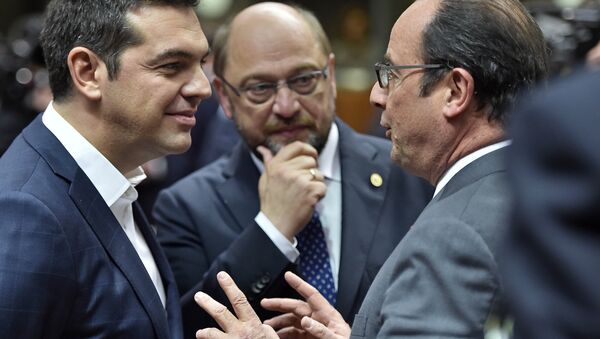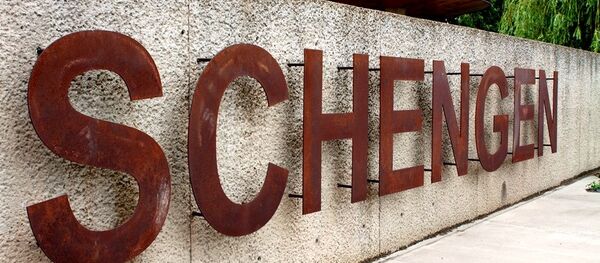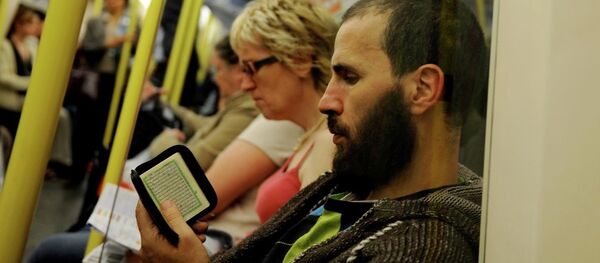Meanwhile, in response to the Paris attacks on November 13, many lawmakers are calling for security checks at all borders, after it was discovered many of the attackers were able to travel unhindered between Europe and Syria as well as frequently between Belgium — where they were based — and Paris.
Schultz told Der Spiegel magazine that the two issues had precipitated a crisis within Europe. "Europe was founded as a community bound together by solidarity. Member states agreed to work together closely because they knew that together, we are stronger. Now we are experiencing a wave of eroding solidarity, first of certain societies and then entire governments.
"At the same time, we have two giant new challenges to meet: the migration movement and terror. And then Great Britain is thinking about leaving the EU," Schultz said.
'The Community Will Break Apart'
He said the issue centered on whether Europe stayed together as one unit dominated by Brussels or whether individual nations repatriated more power to their own capitals.
"We are in the middle of a tough, ideological conflict that is being waged across the entire continent."
On the one side are those who say that global challenges like migration and terror cannot be met with national parochialism. On the other side are those who would like to see a renaissance of the nation-state.
"At the moment, it's like this: We have committed ourselves to pursue joint policies, but then national governments say, 'We aren't bound by that'. That is a dramatic situation, because solidarity is a basic principle that cannot be had on an à la carte basis. If we have rules that nobody adheres to, then the community will break apart," Schultz said.
He said the refugee crisis went back to before German Chancellor Angela Merkel declared her country open to refugees — and that Europe had been ignoring the issue for years.
— EPP Group (@EPPGroup) December 1, 2015
No, thanks, Germany. Deal with your post-WW II sense of guilt yourself. #refugeescrisis https://t.co/QGVrHpwmCH
— praevisio (@praevisio) December 2, 2015
"Certainly Ms Merkel could have communicated more effectively with the French and the Poles," he said.
"At that moment, we were facing an acute humanitarian crisis situation that demanded immediate action. But that isn't the core of the problem. We all have to accept accusations that we ignored the refugee crisis for far too long.
"The first time that I referred to the Mediterranean Sea as Europe's cemetery was in October 2013, when hundreds of people drowned off Lampedusa. Italians, Maltese, Greeks and Spaniards have been pleading for help for years. But nobody cared."





